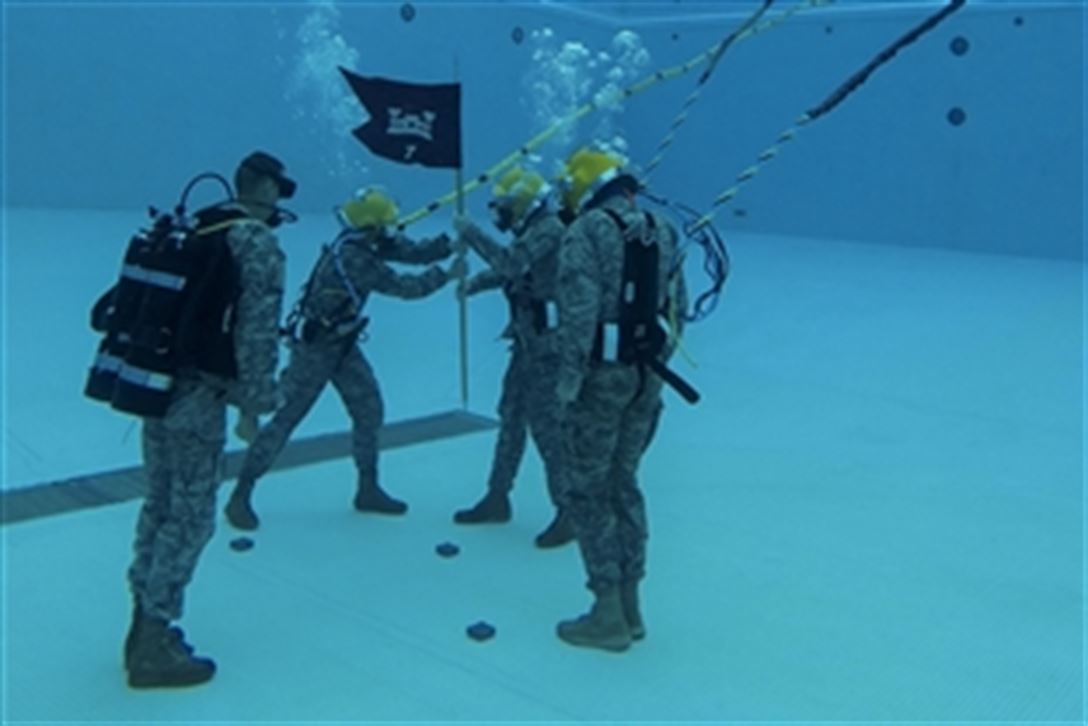
A Recruiter speaks to two U.S. Marines at the Warrior and Family Transition Fair on Marine Corps Base Quantico, Va., June 18, 2015. DoD Photo.
Many have said it before, many times, in many ways. Leaving the military is challenging. Whether you do it on your terms, or or a less desirable way, or you do it after three years or twenty-three, it’s a challenge. You can do all that you can to prepare, or not be prepared at all; but the single most important thing you can do is get your mindset right. There are dozens, if not hundreds of choices you have to make: am I staying where I’m at, going home, or searching for new frontiers? Am I going to continue with what I was doing in the military, or try something new? How do I do either…or both?
As I was leaving the military, some of my colleagues were recommending logistics and supply chain management positions. While I loved the military, I certainly wasn’t in love with that aspect of my service; why would I want to continue to do something I wasn’t passionate about? For me, what I loved most about my “job” was getting stuff done and taking care of my Soldiers. I was able to satisfy that part of what I did in a new way, rather than just continuing my career in logistics.
Luckily, there are some things that you can do to make your transition successful, not in the sense that it is done easily, but that your mindset is in the right place so that the stress is lessened. Dr. Martin E. P. Seligman and his team at the Positive Psychology Center at the University of Pennsylvania have identified five areas that are the foundations of resilience. The acronym to remember is PERMA, which stands for being Positive, having Engagement, creating stable Relationships, finding Meaning, and achieving Accomplishments. A short video introduction to the concept of PERMA can be seen here:
So how do you apply PERMA to your post-military life?
Here are five areas to help you find resilience with your transition:
FINDING POSITIVITY IN THE PROCESS
There are tons of ways to see the bad in things around us. For many, it’s human nature to do so, but for those who are naturally pessimistic, I can all but guaranteed that you have a friend or family member who’s willing to help you point out the negative. See my example in the beginning of this post: Logistics? Really? I was good at it, and it’s okay, as far as it goes, but it would be hard for me to put a positive spin on it. But finding something positive to counteract the negative is important if you want to lower the stress of an upcoming disruption. Even seeing it as a disruption would reduce the positivity. Instead, try to see it as growth, change, an adventure, or forward progress in your life.
DEVELOPING ENGAGEMENT
Engagement is being fully involved in the task; so involved that you might lose track of time. It happens when everything seems to be going exactly right, flowing along, where you’re on track so much that the job takes care of itself. This is also known as the concept of flow, where we get so caught up in doing what we’re doing that it all becomes too easy. One of the recommendations that Dr. Seligman talks about to achieve engagement in undesirable tasks…like planning your transition…is to determine what your signature strengths are, and then do those tasks using your signature strengths. For example, if one of your strengths is gratitude, show gratitude and appreciation for others, and then develop a sense of gratitude towards what is happening. Be deliberate in showing gratitude as you go through the tasks of a transition, and show appreciation to those who supported you as a family. Or if your signature strength is humor, try to deliberately see humor in the many crazy things that happen during a transition. By engaging your signature strength, it’s more likely that you will find engagement…and ease…in getting through task of leaving the military.
SUSTAINING AND CREATING RELATIONSHIPS
Another key aspect to developing resilience is to have healthy relationships. This is critical with service members, spouses, and children. Each relationship must be considered and sustained during this critical time. One of my son’s earliest memories was during a PCS from Maryland to Colorado, of him eating pizza and watching Blue’s Clues in his room while the movers were taking boxes. Most of all, he remembers the attention and care we were giving him, and it wasn’t a scary or bad memory.
Developing relationships during your transition is also important. This is what we call “networking,” but not the kind of networking that means throwing out business cards like bullets from a business card gun. It means developing real and meaningful relationships, having actual conversations with others. There are hundreds of meet ups, groups, events for veterans all over the country. Technology allows us to start communicating with people at the new location, learning what we can, not just from websites, but from people. Establishing new relationships, while sustaining old ones, can positively impact your transition.
UNDERSTANDING MEANING
As seen in the video above, Dr. Seligman indicates that we find meaning in being connected to something bigger than ourselves. In my work as a mental health professional, this is one of the most significant aspects of post-military life that many veterans feel the loss of. They are no longer connected to something bigger than themselves, and it no longer has meaning for them. Remembering that we are part of a larger family, a family that looks out for and supports each other, can go a long way to establishing meaning in our lives. Remembering that the support that we provide each other, individually, makes our nation stronger as a whole. Being aware of the meaning, the importance, of the support we provide, can help us reduce the stress of the move all together.
RECOGNIZING ACHIEVEMENT
When have you not gotten through a difficult patch, and looking back, found a sense of satisfaction at a job well done? Recognizing and celebrating the achievements we accomplish is a great way to find more positivity in our lives. It’s not just the achievement of getting it all over with, but a way to recognize achievement throughout the entire process. As my friend and colleague Jeff Adamec is often fond of saying, “You have to celebrate the little victories.” Got the kids pre-registered for their new school? Celebrate! Checked another task off of the list? Score! We need to recognize the individual accomplishments, and celebrate the wins we have as a part of a larger goal. Even the accomplishment of getting through a stressful day without flipping a lid is an achievement, and could be treated as such. In this way, we build our resilience, our positivity, and our defense against stress.
The more we look for these things in the stressful transitions in our lives, the more we will be able to use them. When things go wrong…and they will…how we react to them is more important than the event itself. By applying PERMA to our transition, we are setting ourselves up for more success than failure. How have you controlled your mindset during a transition? What ways have you found to shift your focus to the positive, and reduce stress? We’d love to hear from you. Please send us a message or comment below!

The Head Space and Timing Blog is supported by the Colorado Veterans Health and Wellness Agency, a 501(c)3 Nonprofit in Colorado Springs, Colorado. The goal of the CVHWA is to provide military culturally competent mental health counseling to veterans and their spouses, regardless of characterization of discharge, time of service, or era of service. Our vision is to assist veterans to identify and remove barriers to their mental, physical, emotional, and behavioral wellness. For questions or inquiries, contact us!


